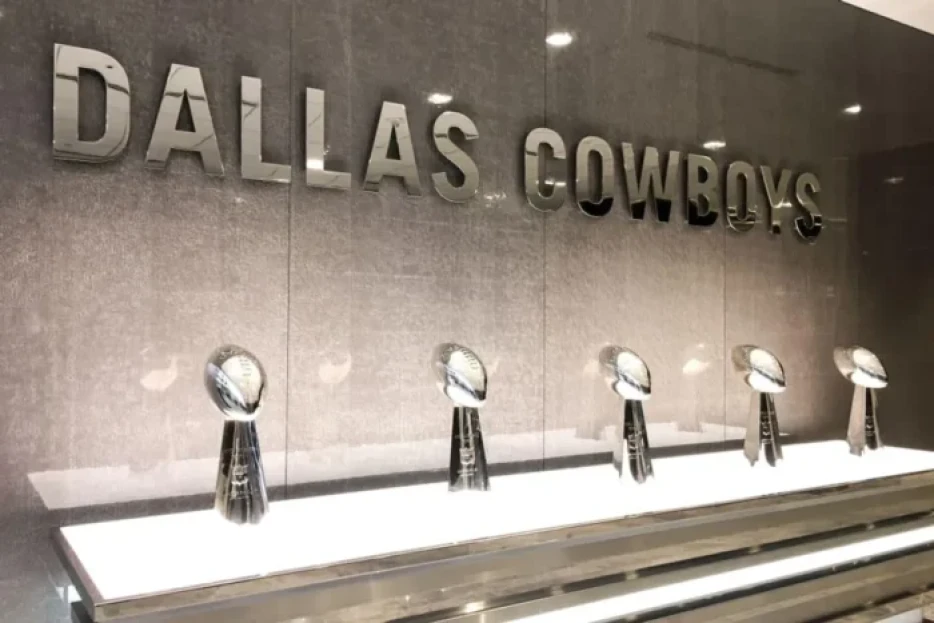
Jerry Jones has owned the Dallas Cowboys since 1989, and during that time, he’s become one of the most recognizable and influential figures in professional sports.
While he’s often a lightning rod for criticism, especially from fans frustrated by a lack of recent Super Bowl titles, a deeper look at Jones’ tenure reveals why he remains one of the NFL’s most effective and impactful owners.
Since Jerry Jones took over the Cowboys in 1989, Jerry Jones has overseen a team that has consistently competed at a high level.
Under his ownership, the Cowboys have won three Super Bowls (XXVII, XXVIII, and XXX), made seven NFC Championship Game appearances, and built an overall regular-season winning percentage of .550 as of the 2024 season.
To put that in perspective, here’s how the Cowboys’ winning percentage compares to other prominent NFL franchises during that same timeframe (1989-2024):
While the Cowboys haven’t returned to the Super Bowl since the 1995 season, they’ve won more regular-season games than most teams over the past 35 years, consistently staying in the top third of the league in performance.
That level of sustained competitiveness, especially in a league built for parity, is a credit to the stability and investment that Jones brings to the franchise.
One of Jerry Jones’ most notable accomplishments is transforming the Cowboys into a global sports brand.
When he bought the team in 1989 for $140 million, it was already a respected franchise, but Jones elevated it to an entirely different level.
Today, the Cowboys are worth an estimated $10.1 billion, making them the most valuable sports franchise in the world.
Much of that value comes from Jones’ forward-thinking approach to business, including:
Jones didn’t just make the Cowboys more profitable—he helped shape the modern economic model of the NFL.
Another underappreciated aspect of Jones’ leadership is the way he supports his players.
He is known for being loyal and compassionate, often standing by players through injuries, personal struggles, or off-field controversies.
The player-first mentality has helped create a positive locker room culture that resonates with veterans and rookies alike.
That loyalty and stability extend to the front office, where Jones has built a consistent football operation alongside his son, Stephen Jones, and VP of Player Personnel Will McClay.
While critics have long questioned Jerry’s dual role as owner and general manager, this structure has brought stability...